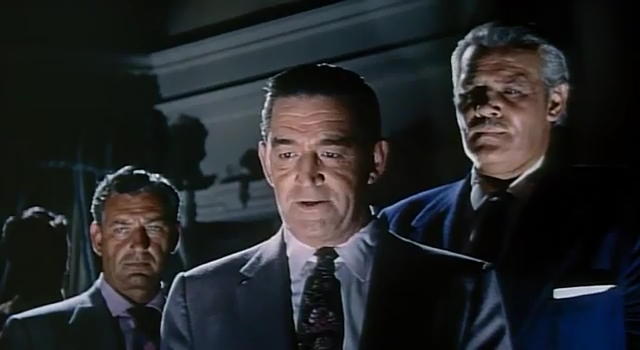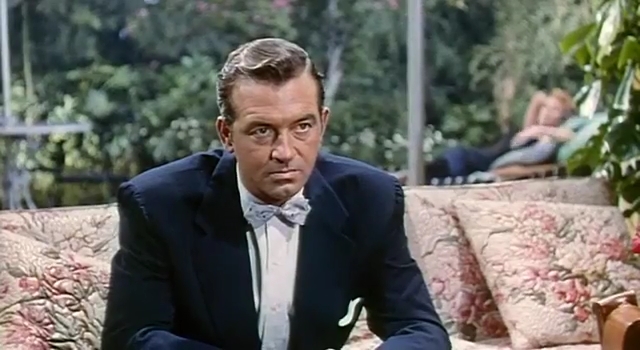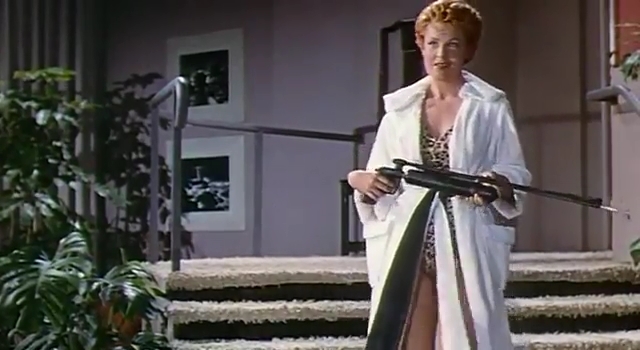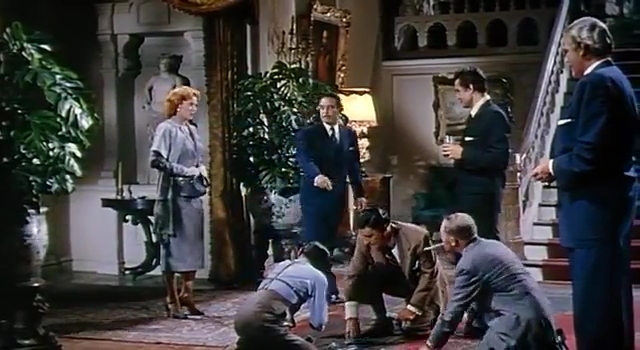Robin
Hood
A very calmly
assured masterpiece, with tremendous and conscientious effort applied to the
set before the camera rolls.
Its two halves
correspond to the double identity of the Earl of Huntingdon and Robin Hood
(Douglas Fairbanks).
Richard (Wallace
Beery) is a mighty king, always eating something. John (Sam De Grasse) is a
blackguard and a blighter, Sir Guy of Gisbourne (Paul Dickey) a murderous
villain, the reign of Prince John during the Crusade is a black stain of
horrors, depredations, savagery and cruelty. Even the essential stupidity of
this reign is shown, preparing the heroic defense of the realm by Robin and the
men of Sherwood Forest.
His magnificent
enthusiasm elevates the plight into a noble venture. He has been “afeared
of women” as the “slow long opening” Variety
complained of shows, full of amusing scenes, but Maid Marian (Enid Bennett) has
won him, and she’s feigned her death to escape Prince John, she’s
discovered at the Priory of St. Catherine’s.
King Richard,
laughing, joins the good men of England in Sherwood Forest. There’s the
taking of Nottingham with three men, the storming of the castle where Robin and
Marian are near death, the wedding of the pair, and a fine closing joke.
The Iron Mask
Richard Lester
can’t beat these gags but works out this style as The Three Musketeers and The
Four Musketeers.
It is nowadays
described as “tongue-in-cheek” without explanation.
The evil twin is
placed on the throne by De Rochefort’s long-planned treachery.
D’Artagnan (Douglas Fairbanks) and the three musketeers die one by one
saving the king, and are seen ascending the heights of heaven for their reward.
Just so, their
virtues endure despite the claptrap of Sony on “the perishable
medium”, as every good Borgesian re-reader knows.
Rebecca of Sunnybrook Farm
The Battle of
Sunnybrook Farm has to be waged and won before Little Miss America can take to
the airwaves, then there’s the pride of place belonging to Little Miss
Universe that has to be dealt with.
That is the
arcane understanding, akin to Capra’s State
of the Union ten years later.
Dwan’s
virtuosity is so deep, his screenwriters so attuned, his sense of humor so
astutely cinematic, Variety was at a
loss for words, except to say the book was not like this.
The Gorilla
The married
estate.
The standpoint of
the young couple on the verge of it, sixty-five minutes of sustained
inspiration on the subject, by a trained gorilla named Poe.
A hairy arm
enters the bedchamber, where the maid supine is reading Romeo and Juliet,
it pins a note on her.
She runs
downstairs screaming, opens a door (a cat is there), enters the great room,
takes a fireplace poker and turns to face the shadowy entrance of Peters, the
butler.
The Acme
Detective Agency takes the case.
And so forth, in
one of the most brilliant and sublime comedies ever made. No detail is wasted,
all are brought into the account and make up its substance.
It wasn’t
movies that killed vaudeville, it was critics, they just don’t get it.
Young People
Only forty-five
minutes from vaudeville is Stonefield, land of the rock-ribbed, fearless
mockers, tireless antediluvians.
The bridge is
‘bout out, fifty dollars would save it, item deferred on the town meeting
agenda.
The Three Ballantines
move there to raise the kid, an orphan. And that’s the film, New Deal
plenty meets small-time crabbiness.
Dwan’s idea
of a good picture is as complicated as can be, only to make a direct point.
Wellman shapes
the theme in Wild Boys of the Road, young people of another sort, in a
way. America is a young country, says Dwan’s newspaper reporter and
typesetter and editor of the Stonefield Democrat.
The kid tells off
the battleaxe in no uncertain terms, and that is the entire point.
Sands Of Iwo Jima
Replacements out
of boot camp get retraining outside Wellington, go to Tarawa and get the flag
raised on Mt. Suribachi.
Variety and the New York Times, leading the way for
subsequent reviewers, ignored the particular structure suited to a
retrospective of the war. The Marines are not recruits, three in the squad have
seen action. It’s late in the day just after Guadalcanal, harsh training
is required for combat. The squad is bumptious, rambunctious, careless and
rebellious.
All the minute
details of the drama away from the battlefields are of the highest
significance, though you could not find a critic to say so. They mostly reflect
the situation thus far, defeats and contretemps and losses, innocence
and camaraderie, there’s even a wedding in New Zealand.
The battle scenes
are rigorously tempered with actual participants and combat footage to tell the
whole story of islands wrested from the Nips even after forty years of
occupation.
The instantaneous
sharp focus on combat training in the South Pacific hastened by the war is half
the story, much of the rest is fighting, the remainder a consciousness of the
event.
Silver Lode
The meaning of
the film is revealed in the name of the phony U.S. Marshal (he has killed the
man who forged his papers for him), wanted for murder and cattle rustling,
McCarty.
The main concern
of the film is to portray a modern witch hunt, which as ever is founded on
avarice and grievance. Our hero escapes the inevitable torture and death and
confiscation by dint of his fellow citizens and the law, when these fail he
defends himself.
The form pays
homage to Zinnemann’s High Noon, the ending in the bell-tower is
from Welles’ The Stranger.
Time Out Film
Guide gives it rare praise indeed
as “an unqualified masterpiece”, while Slant surely does not
mean to say it’s “a subversive gem.”
It premiered one
week after the Army-McCarthy hearings closed.
Tennessee’s Partner
Bret Harte has
him fetch the feller home drunk or daid and meet him on the road to Paradise,
four screenwriters almost give him a name, Cowpoke, he can’t stand
backshooters, Tennessee returns the favor.
Van Nest Polglase
for the Marriage Market in Sandy Bar run by the Duchess, where Tennessee plies
his trade, a gambler deeply suspicioned, a gunhand mighty envied.
A varmint in town
has a smiling face and money for killers or he does it himself.
Tennessee marries
the Duchess and takes her away on the steamboat, because that’s how
it’s done in the movies.
Slightly Scarlet

City Hall is run
by a gangster set to knock the reform candidate “out of the box”
only he can’t find any dirt, his “genius” comes up with clean
hands and is whipped out at door. “Remind me
never to send my son to college,” the gang is told by its leader in a
memorable barb, “that is, if I ever have
a son.”
Two sisters, one
a ganef (cf. Hitchcock’s Marnie, “screwball little
idiot!”) just out of state prison, the other recently hired as a
well-paid secretary to the candidate, a millionaire who “owes nobody nothin’.” Defenestration
of a crusading publisher. “Mr. Jansen is a nice
man, but he doesn’t know how to win elections.” Question
of “dirt” on the gangster (cf.
Frankenheimer’s Seven Days in May),
“a low-grade moron with delusions of grandeur.”

Victory at the
polls, gangster flees to Mexico, promising revenge. The
gang cools its heels. “Everybody likes a
lottery, everybody, and I’d
split the take right down to the middle, one-fifth o’ the payoff in
charity, and one-fifth for the boys.”
“What about
the other three-fifths?”
“Well, now,
a guy’s gotta get sump’n for his big ideas.” Which is to say the genius now runs the show with a
pal as police chief, a detective lieutenant averse to rousting politicians. “Prostitution, thieves and grifters” are out, “nice, clean, quiet gambling” is in.
Another view of
the reform racket (The Great McGinty,
dir. Preston Sturges). The Big Sleep (dir. Howard Hawks or Michael Winner) is indicated as
the absconded structure. “It’s the same old
operation, isn’t it.” Arrest of the ganef. Return
of the gangster, flight of the genius, shootout and capture.

Screenplay by
Robert Blees out of James M. Cain (Love’s Lovely Counterfeit), décor
Van Nest Polglase, cinematography in Superscope and Technicolor by John Alton, score Louis
Forbes.
One of Godard’s
Ten Best Films in France that year for Cahiers
du Cinéma, after Welles’ Mr. Arkadin, Renoir’s Eléna et les hommes,
Hitchcock’s The Man Who Knew Too
Much, and Logan’s Bus Stop,
before Sternberg’s The Saga of Anatahan, Bresson’s Un Condamné à mort s’est échappé,
Rossellini’s Non credo più all’amore (La paura),
Cukor’s Bhowani Junction, and
Quine’s My Sister Eileen.
Bosley Crowther of the New
York Times, “an exhausting lot of twaddle”. Leonard
Maltin, “effective study... of big-city
corruption.” Film4,
“an enjoyable crime-romance.” Time Out, “smart”. Catholic News Service Media Review Office,
“muddled”. Sandra Brennan (All Movie Guide), “little film
noir”. Halliwell’s
Film Guide, “uninteresting”, citing
the Monthly Film Bulletin, “difficult
to sort out”.
